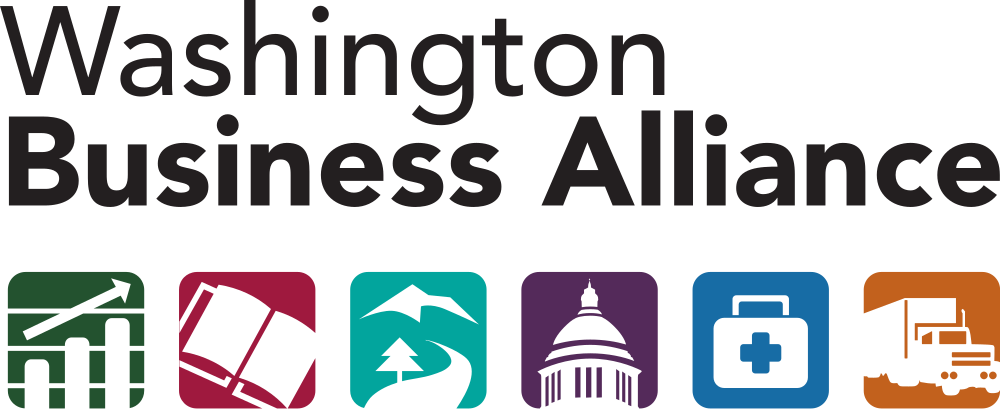Some of Washington State’s workforce development programs have been shown to deliver big rewards to participants and taxpayers. Unfortunately, other programs like Adult Basic Education (ABE) and English as a Second Language (ESL) fail to deliver value for either participants or taxpayers. Fortunately, there is evidence of a successful new approach to quickly empowering ABE/ESL participants to secure careers, pioneered in Washington. But it requires team-teaching and curriculum tied directly to employers’ needs.
Integrated Basic Education and Skills Training (I-BEST) is an emerging approach to teaching ABE pioneered by Washington’s community and technical colleges, and gaining steam nationally. Compared to traditional ABE/ESL, the I-BEST approach delivers dramatic results, helping participants to quickly build marketable job skills and achieve higher earnings. I-BEST combines adult education with professional-technical training, all while narrowing the time frame for students to fulfill requirements and earn degrees. The Washington State Board for Community & Technical Colleges says, “I-BEST challenges the traditional notion that students must move through a set sequence of basic education or pre-college (remedial) courses before they can start working on certificates or degrees.”

- There is an I-BEST for Culinary Arts at Lake Washington Institute of Technology
ABE and ESL Challenges
ABE/ESL in Washington is provided almost exclusively through the state’s 34 community and technical colleges. ABE provides instruction in reading, writing, and math for adults whose skills are below the 9th grade level. This fiscal year $94 million is being spent on ABE in Washington – $9 million federal, $85 million from state funds. ABE serves about 60,000 participants per year. The Workforce Training & Education Coordinating Board recently published a Net Impact Study for every major state workforce program from research conducted by the W.E. Upjohn Institute for Employment Research. The results show the challenges of providing remedial education to the population that needs it.
The comprehensive net impact study provides a head-to-head comparison of participants and nonparticipants. Participants are compared to a control group of individuals with similar demographic characteristics from the state’s WorkForce registrant pool. For each student in traditional ABE or ESL, the analysis estimated that the public (taxpayer) cost was about $2,843 over the length of their enrollment, and the student cost is $117 in foregone earnings. What is delivered in exchange for all that? “The average ABE/ESL student makes no net gains in earnings in either the [short-term] or during the course of working life.”
Sparking Student Success with I-BEST
According to the the state’s community and technical colleges board, multiple independent studies have concluded that I-BEST students outperform similar students enrolled in traditional basic skill programs. Unlike traditional ABE which yielded “no significant positive impact” on earnings and employment,” I-BEST participants were found to be employed at double the hours per week and earning $2,310 more per year than their cohort in the control group.
In 2004, one of the first I-BEST pilots was launched at Lake Washington Institute of Technology in Kirkland, Washington. The results were impressive. Over half of Lake Washington’s I-BEST students earn a spot on the Dean’s List each quarter. Success rates in remedial math courses are approaching 90 percent, whereas the traditional route had produced around 13% passage.
I-BEST’s team-teaching model requires extensive reimagining of curricula. Lake Washington Institute of Technology’s Hector Valenzuela was asked to develop contextualized mathematics content and integrate it into Auto Tech curriculum. He shadowed the existing auto shop class extensively in order to identify segments of the course where applied math lessons were organically rising out of the auto content. The approach was entirely practical and student-oriented. According to Valenzuela, “We… did not follow the traditional math sequencing of classes. We utilized math that the students needed regardless of sequencing. If students needed to know about calculus and algebra in the same day, then that’s what they were
taught.”
The Road Ahead
Innovation in remedial education is needed in Washington State, where 57 percent of community/technical college students require at least one remedial-level course. The I-BEST approach is prime for replication both within ABE/ESL and across a range of other components of the community and technical college system. Lake Washington’s Auto Tech I-BEST is an example of efforts funded in part by the Gates Foundation to extend I-BEST outside of ABE/ESL into the larger world of Development Education. This expansion into Dev. Ed. meant the launch of new programs like automotive repair at LWIT, welding at Gray’s Harbor Community College, and practical nursing at Bellingham Technical College.
Jon Kerr, Director of Adult Basic Education at the State Board of Community and Technical Colleges, praised I-BEST’s student-oriented approach to learning and certification. He wrote that the I-BEST approach “is different because it doesn’t require students to enter into a long, and often never-completed pre-college pathway before being able to enroll in college level professional-technical certificate and degree programs leading to self-sustaining wage jobs… It offers students the opportunities for early and immediate success that help them continue on.”
Kerr was optimistic about scaling the I-BEST approach, He stressed the importance of developing and offering ongoing professional development opportunities to maintain a skilled I-BEST faculty. “I-BEST is very scalable, particularly when…implemented with a systemic perspective: incorporating policy at the state, institutional, and departmental level; including formalized collaborative partnerships and agreements with community based organizations.”
Doug Emory, Dean of Academic Core at Lake Washington Institute of Technology, describes I-BEST as central to a vision of student-oriented, flexible, and employer-driven skills training in Washington’s technical college system. Emory described I-BEST as existing within a larger system of “meaningful, stackable certificates that add up to a degree of greater currency in the job market.”
